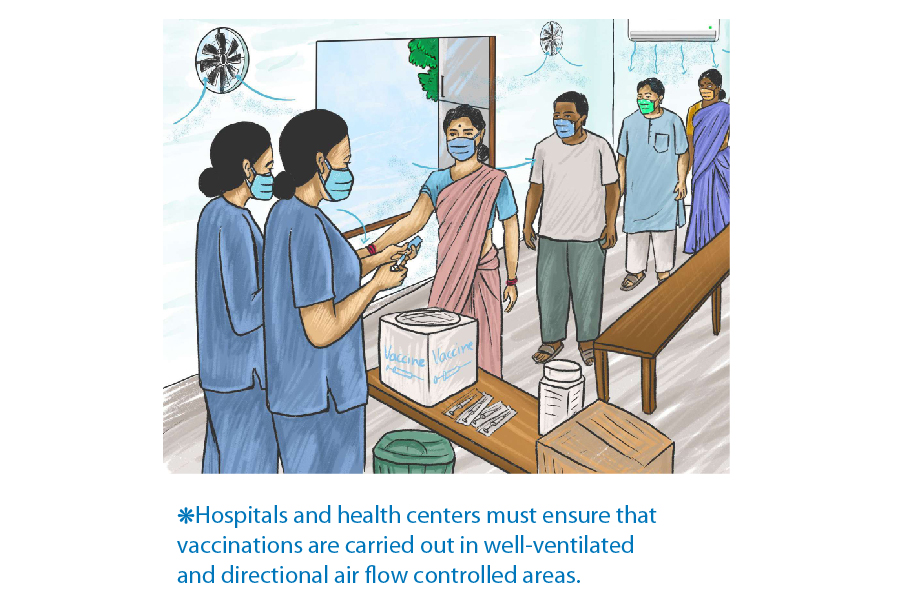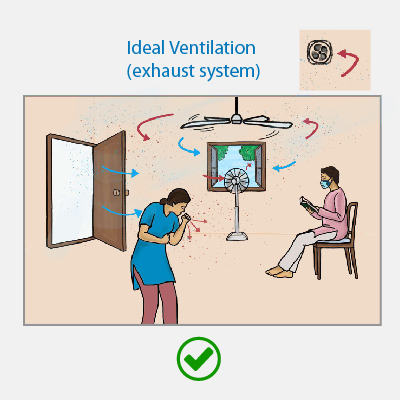
Worried infection may spread indoors? Guidelines to keep home/office safe
Alarmed by the second COVID wave that hit the country hard, the Union Health Ministry has issued guidelines for home and office ventilation to prevent the infection from spreading indoors.

Alarmed by the second COVID wave that hit the country hard, the Union Health Ministry has issued guidelines for home and office ventilation to prevent the infection from spreading indoors.
Infection transmission risk is much lower in outdoor areas, as virus particles get quickly dispersed.
For indoors, high concentration of the virus can be reduced by ensuring that outdoor air flows in. it is just like the way smells can be diluted by ventilation.
Saliva and nasal discharge in the form of droplets and aerosols carry the virus from one person to another. Larger size droplets fall to the ground and on surfaces, and smaller aerosol particles are carried in the air to greater distances.
In closed un-ventilated indoor spaces, droplets and aerosols become quickly concentrated and greatly increase the risk of transmission to people in the area. Hence, the dire need to keep your home and workspace adequately ventilated.
Ventilation at home
In case you do not have an AC at home it would be good to help the air circulate properly. Let outdoor air flow in to displace indoor air. This directional air flow and improved ventilation can lower the potential for infection from accumulated viral load in closed spaces. Better the ventilation, lower the potential for transmission.
Fan placement is also important. Avoid placing fans in a way that could potentially cause contaminated air to flow directly to someone else. Installing an exhaust fan is important. Keep exhaust fans running if the windows and doors are shut.
Add an exhaust fan or turn a pedestal fan into an exhaust fan by turning it to face outdoors, to create the ideal air flow for maximum protection from indoor infection.
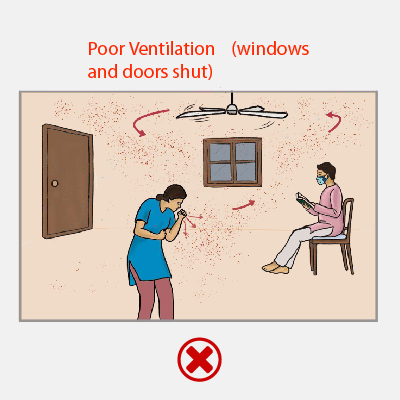
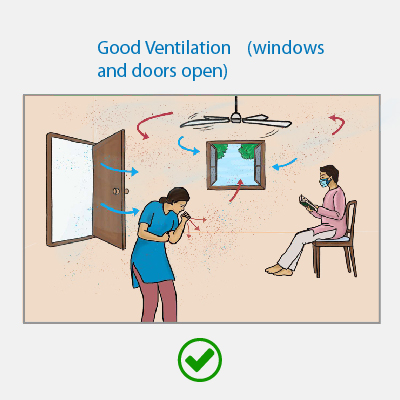
Maintaining ventilation at workspace with ACs
While air conditioners could be a necessity at office, it is still important to maintain good aeration so that the virus doesn’t concentrate at one place.
Running ACs while keeping windows and doors shut, traps infected air inside the room, and increases risk of transmission from an infected carrier to others.
Also read: Go-ahead for home test kit for COVID, ICMR issues guidelines
Keep windows and doors ajar while the ACs are running to bring in clean air and dilute virus particles.
Add gable/exhaust fan for maximum air circulation.
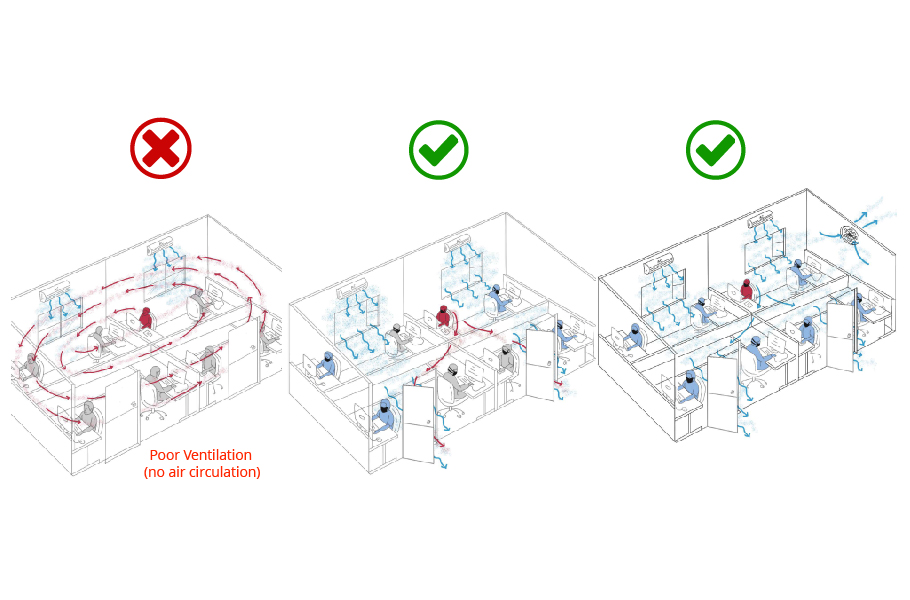
In case of centralized air conditioning
Improved central air filtration/increased filtration efficiency is especially helpful when outdoor air delivery options are limited. Roof ventilators and HEPA/regular filters are recommended in offices, auditoriums, shopping malls etc. These filters must be regularly cleaned or replaced.
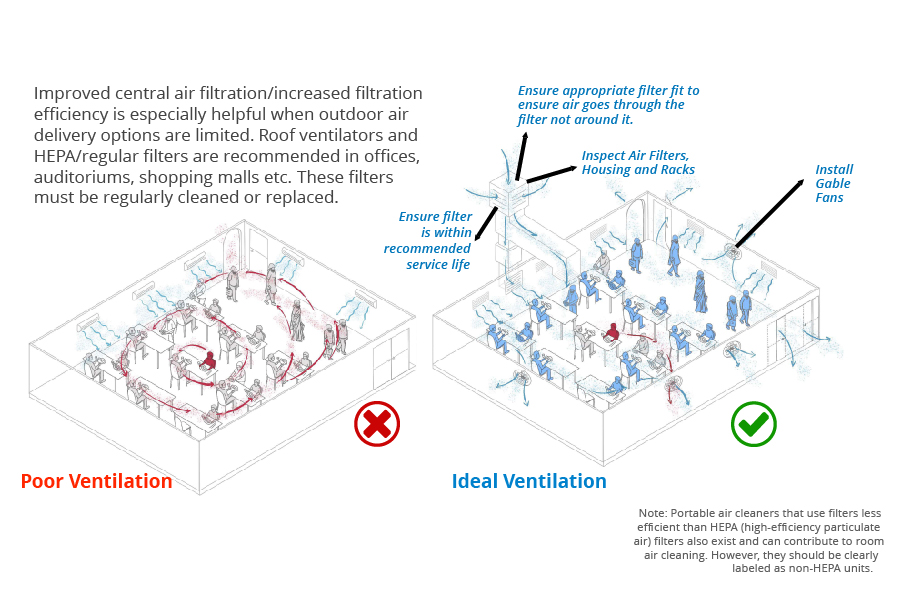
Ensure cross flow of air in public transport vehicles
Keep windows open in buses and trains where possible.
Introduce exhaust systems to improve airflow in air conditioned buses and trains.
Also introduce HEPA/regular filters in air conditioning systems. These should be cleaned and replaced regularly.
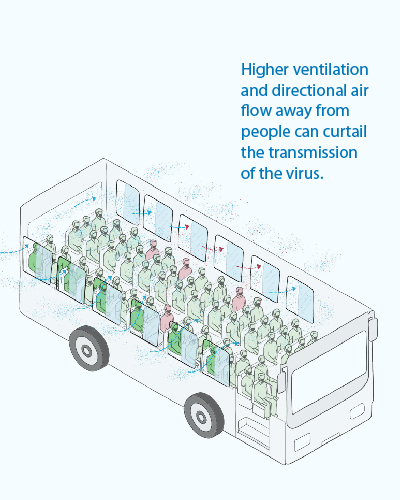
In hospitals
Care that needs to be taken at hospitals and vaccination centres.
